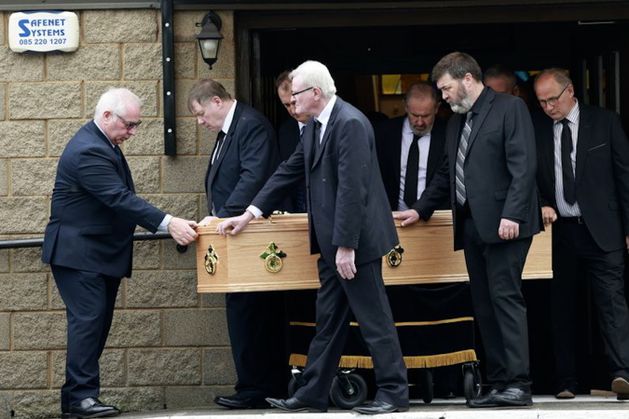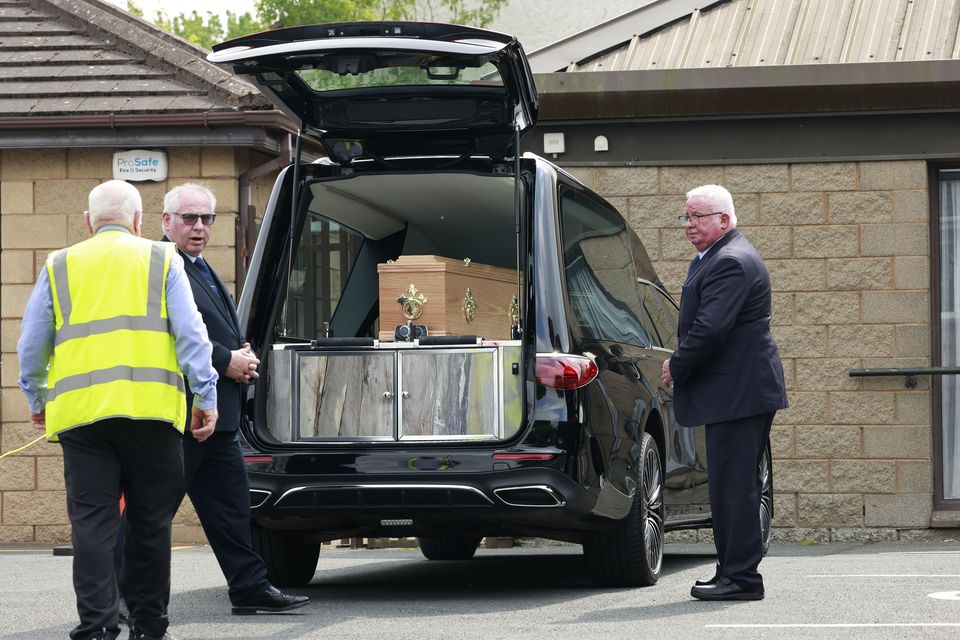Bishop Brendan Comiskey, who died this week at the age of 89, quit as bishop of the Ferns diocese in the south-east of Ireland in 2002 after acknowledging failings in his handling of complaints against notorious priest, Fr Sean Fortune.
The diocese’s much-criticised response to allegations against Fr Fortune – who took his own life in 1999 while on bail awaiting trial on a litany of child abuse charges – and other clerics in its parishes, prompted the government’s landmark Ferns Inquiry.
The subsequent Ferns Report, published in 2005, was damning of the diocese’s handling of clerical abuse allegations across a four-decade period.
Requiem mass for Bishop Comiskey, who was originally from Co Monaghan, was held in the Church of the Sacred Heart in Clondalkin in west Dublin on Thursday.
Fr Jim Fegan, a priest in the Ferns diocese, told hundreds of mourners who gathered for the service that failure in one aspect of a person’s life does not define them entirely.
He said the bishop was in some respects a “product of the church culture of his time”.
Fr Fegan said the bishop “believed deeply in the power of kindness and that every person deserved to be treated with dignity and respect”.
“And he embraced this belief wholeheartedly,” he added.
“He had a huge, huge heart, and he always spoke of the value of compassion and the power of a kind word or a helping hand.”
The coffin of Bishop Brendan Comiskey arrives at the Church of the Sacred Heart, in Clondalkin (Arthur Carron/PA)
Reflecting on his resignation as Bishop of Ferns, Fr Fegan said: “Leadership is never easy, and Brendan experienced his own unique mix of gifts, challenges and life lessons, and there were times when he felt he did not meet the expectations that had been set before him, but yet it is very important to recognise that failure in one aspect does not define the entirety of a person’s life or their great legacy.”
The cleric went on to quote part of the statement Bishop Comiskey made upon his resignation. It was a statement in which the bishop asked for forgiveness and acknowledged while he had tried to do his best, his best was “not good enough”.
The priest then told mourners: “My friends, we can see more clearly now that Brendan Comiskey was in some ways a product of the church culture of his time, and that was a culture that focused on organisation rather than people.
“At all times, Brendan stated very clearly that all those who have suffered abuse must never be forgotten, and they must be assured of how much God truly loves them and how abuse is handled must be constantly under review.
“No one moment is the measure of a person’s life. All the moments must be in the scales, and we leave the final reckoning to God, who alone knows our innermost thoughts.
“The overall story of Brendan Comiskey’s life and the church that he led, I believe, helps to shape our approach to leadership and accountability today so we too can admit when we have gone astray and correct our course, so that we can better appreciate that leadership is, above all, a shared endeavour filled with good decisions and bad, and that life is not just about how we handle our failures or our successes, but rather about the love we give to our companions on the road.”
After the service, the bishop’s remains were taken for burial in Annyalla Cemetery in Co Monaghan.
#Mourners #controversial #bishop #Brendan #Comiskeys #funeral #told #failure #define #persons #life








